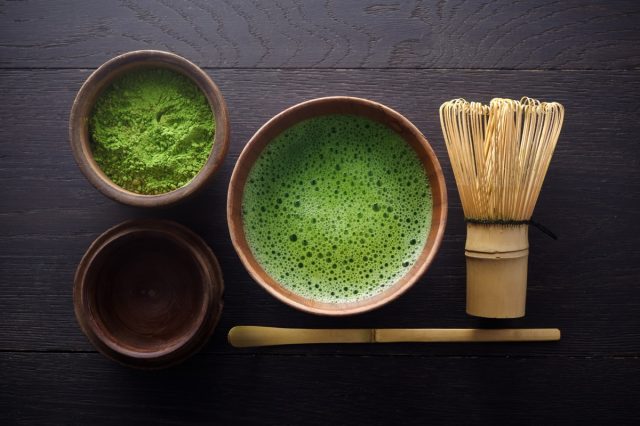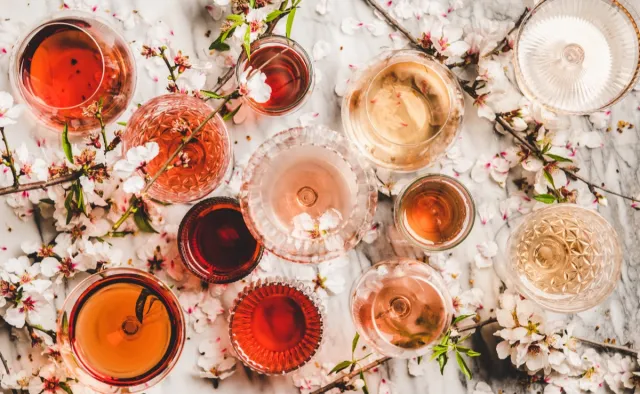The Best Coffee, Tea, and Wine Tips of the Year That Can Lengthen Your Life

They say you are what you eat, but if you’re also what you drink, there’s a lot to consider about how often you’re sipping on a mug of coffee or tea—or a glass of wine. These beverages, which are among the most popular drinks in America, made headlines throughout 2022 as their health benefits were examined and extolled by scientists and dietitians alike.
In fact, some notable research about these beloved beverages was published this year, identifying some to be even healthier than experts previously thought.
With all eyes on a new year and starting fresh, healthy habits in 2023, here are the latest tips—backed by new research—about coffee, tea, and wine that you can follow to help lengthen your life. Cheers!
Drinking coffee may help you live longer

Many coffee fans say they couldn’t live life without a morning cup of java, and studies in 2022 showed you might also live a longer life because of it.
“Moderate consumption of unsweetened and sugar-sweetened coffee was associated with lower risk for death,” according to a study in the Annals of Internal Medicine, published in July.
The researchers examined 120,000 or so participants in the United Kingdom who identified themselves as regular coffee drinkers, be it unsweetened or sweetened (they must have done so over seven years). Those who drank 1.5 to 3.5 cups a day had a lower risk of death compared to non-coffee drinkers.
Two to three cups of coffee per day may reduce your risk of cardiovascular disease

In a separate study this year, published September 27 in the European Journal of Preventive Cardiology, researchers found that “Decaffeinated, ground, and instant coffee, particularly at 2-3 cups/day, were associated with significant reductions in incident CVD [cardiovascular disease] and mortality. Ground and instant but not decaffeinated coffee was associated with reduced arrhythmia.”
“The results suggest that mild to moderate intake of ground, instant, and decaffeinated coffee should be considered part of a healthy lifestyle,” said study author Peter Kistler, head of clinical electrophysiology research at the Baker Heart and Diabetes Institute and head of electrophysiology at Alfred Hospital in Melbourne.
Other evidence-backed benefits of coffee include improved workout performance, reduced risk of depression, and a lower risk of chronic disease. This is due to coffee’s caffeine and antioxidant content.
Sipping matcha tea may have a number of exciting health benefits

Matcha tea was “ubiquitous” in 2022, says The New York Times, and for good reason: Not only is the green tea deliciously vegetal, bitter, and savory, but it may be healthy for you too.
Our research roundup, examining what happens to your body when you drink matcha, found that it may protect your liver, support brain function, boost heart health, and increase your fat burn. Matcha tea is rich in antioxidants, particularly catechins, which are a type of flavonoid. These compounds may help to protect cells from damage caused by free radicals, which are unstable molecules that can contribute to the development of chronic diseases.
Choosing natural wine may not be healthier for you

Although it’s been around for a while—since ancient times, in fact—2022 was the year natural wine started making bigger-than-ever headlines: Reports came out about nightclubs serving it and it was even dubbed a “food trend that defined the year.”
Although the category is still fuzzy, experts agree that natural wine is generally wine made from fermented grape juice that is unadulterated, with zero additives. “The philosophy tends to be not to manipulate (the wine), to let the grape stand for itself, and have the soil and terroir speak through the bottle,” Coly Den Haan, a sommelier and the owner of Vinovore, a Los Angeles-based shop specializing in products from female winemakers, explained in our story about everything you need to know about natural wines.
By its very nature, the name makes it sound healthier than regular wine… but is it? As the NYT puts it, “There’s little research to back up claims that natural wine leads to improved gut health, and a hangover is a hangover whether you’re drinking a natural wine or the conventional stuff.”
If you do drink wine, grab a glass of red. It may help protect you against heart disease, due to the flavanols, according to research.
Opting for unsweetened water, coffee, and tea remain the healthiest drinks

Wading through an endless sea of marketing, it can be hard to figure out which drinks are really the healthiest choices. However, there are some tried-and-true beverages that have been proven to be the #1 healthy contenders:
Water: As the most-essential nutrient, water should be the go-to choice for quenching your thirst and staying hydrated. It has no calories, sugar, or artificial sweeteners, and it helps to flush toxins from your body.
Unsweetened tea: Matcha or not, tea is a great source of antioxidants and can come in many different flavors. Green, black, and oolong teas all contain polyphenols, which are plant compounds with potential health benefits. Just be sure to skip the sugar and opt for unsweetened versions to avoid adding unnecessary calories.
Unsweetened coffee: Like tea, coffee is a good source of antioxidants and can help to improve mental alertness and concentration. However, it’s important to consume it in moderation (one to three cups a day), as excessive consumption can lead to negative side effects such as insomnia and jitters.







